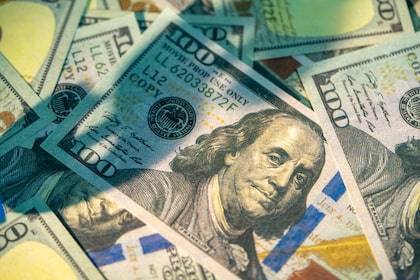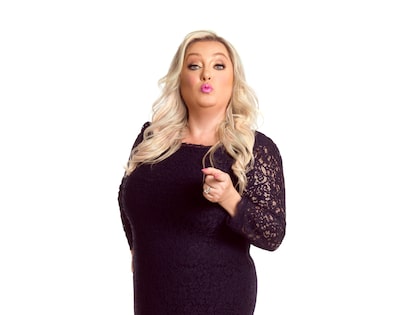February 26, 2010
Star Diet Tips from 'Extra' Experts!

Our Lifechangers, Kimberly Snyder and Liz Vaccariello answer more of your diet and exercise questions:
Q: What is more important diet or exercise?
Liz: Diet's more important to take the weight off, but exercise is more important to keep it off. Balance is what's key. You want to eat healthfully. You want to exercise so you're keeping your energy up, and you're also building muscle that keeps the metabolism humming which makes you burn more calories even when you're just sitting in a chair.
Q: What is the right amount of calories to eat if I want to lose weight? Is there a formula?
Kim: I actually have not counted calories for years. I think calorie counting is actually very restrictive and very confusing. Rather than counting calories, let's focus on eating more natural health foods. For instance, starting lunch and dinner with salads, which are full of fiber, they'll fill you up, are naturally low in calories. But use raw apple cider vinegar instead of balsamic vinegar in your salad dressing. It is less acid forming that balsamic. It promotes probiotic formation in the intestinal track, helps your digestive track. It's much healthier than balsamic. Get the raw kind. People take it as a supplement: a teaspoon before they eat because it helps digest their food so much better.
Q: What's your number one worst food to eat?
Kim: If I had to choose just one in the American diet that I would love to cut out completely, it's high fructose corn syrup. It's basically a cheap sweetener that's a shelf staple. It doesn't metabolize cleanly in the body so it really makes us fat. It doesn't signal to our brain that we're full. It's horrible! So we really have to be careful of high fructose corn syrup.
Q: Is there a food that people think is good for them but is really bad for them?
Liz: There sure is and it's called diet soda. It's nutrient free, it's wasted calories. Studies have shown that people who have a diet soda eat more at the subsequent meal than people who have a regular calorie soda. Two reasons why: first of all we feel justified in eating more calories subconsciously or consciously and second of all fake sugar actually makes us crave real sugar.
Kim: The other issue with diet sodas in general is that they're extremely acid forming. The more acidic our bodies are, the more we tend to hold onto weight and it can contribute to a lot of premature aging, wrinkles and what not. Also leaches minerals out of the bones.
Q: I hear fruit has a lot of sugar. Isn't that bad for a diet?
Kim: The best way to eat fruit is on an empty stomach. If it's sitting on top of heavy foods, if we've eaten some carbs or protein first which needs to stay in the stomach longer, the fruit's going to sit there, has nowhere to go, it's going to start to ferment. That's going to lead to the weight gain and sugar problems that a lot of people are talking about. If we eat fruit on an empty stomach it's going to be a much healthier food.
Q: How big a difference does it make to buy organic?
Liz: I would say if you're concerned about weight loss, it has no impact. But if you're concerned about health, organic food has higher nutrients and lower levels of pesticides getting in your body. But even more important than organic food is local food. The closer your fruit or vegetables are grown to where you're eating them, the more nutrients are going to be inside. In the grand scheme of things you want to look for organically locally produced produce. But when in doubt go for local and it will probably be cheaper.
Q: Is it okay to drink alcohol while I'm dieting?
Liz: It is okay as long as you're acknowledging the calories in that beverage as part of your weight loss plan and keeping it to one drink a day for health reasons. One glass of wine can be 100 calories. A beer can be 150 calories and often we don't realize the impact those sneaky calories are having on our waistline. I wasn't to emphasize you should go for the most healthful alcohol possible and that tends to be wine, red wine in particular. One glass is shown to be heart healthy.
Q: Do cleanses work?
Kim: All that toxicity won't come out of our body in a couple of days. What's more important is our daily practice or diet, and making changes, incorporating foods that are cleansing on an ongoing basis. Cleanses are helpful if they jumpstart someone into a healthy overall diet, but I don't recommend someone just do cleanses once in a while and think they're fine eating Cheetos the rest of the time.
Q: How many calories equal a pound?
Liz: The magic number is 3,500 calories. That breaks down over the course of a week into 500 calories a day. That's the deficit you need to create in your body if you want to lose roughly a pound a week. You can do that by eating 500 fewer calories a day or by exercising 500 more calories off.
Q: I hear people put on rebound weight after being on high protein diets. Is that true?
Kim: I don't recommend that people stick to just one macronutrient; let's eat all protein and not carbs. It's just not balanced so of course eventually people are going to swing back and they are going to gain weight. It's not a balanced diet.
Q: Who has a harder time losing weight men or women?
Liz: Ladies, I'm sorry, it's harder for a woman to lose weight and there are a couple of reasons. First of all men have a higher metabolism. They have more muscle mass so they're burning 30% more calories throughout any given day. Second of all, women have to deal with the hormonal fluctuations that make us bloat and that lead to cravings for fatty foods, chocolate in particular. And finally men when exercising tend to go to the weights which are going to build that fat burning muscle and women, we're tethered to our treadmills doing our cardio. The best thing a woman can do is to exercise and build muscle.













